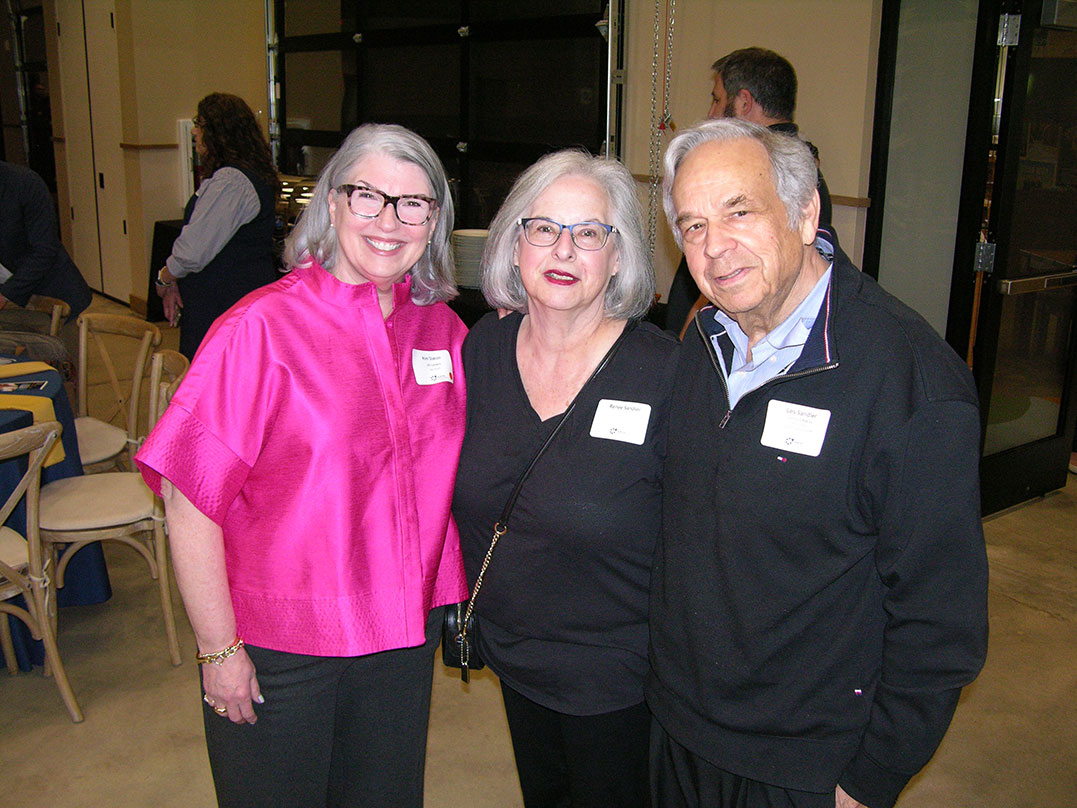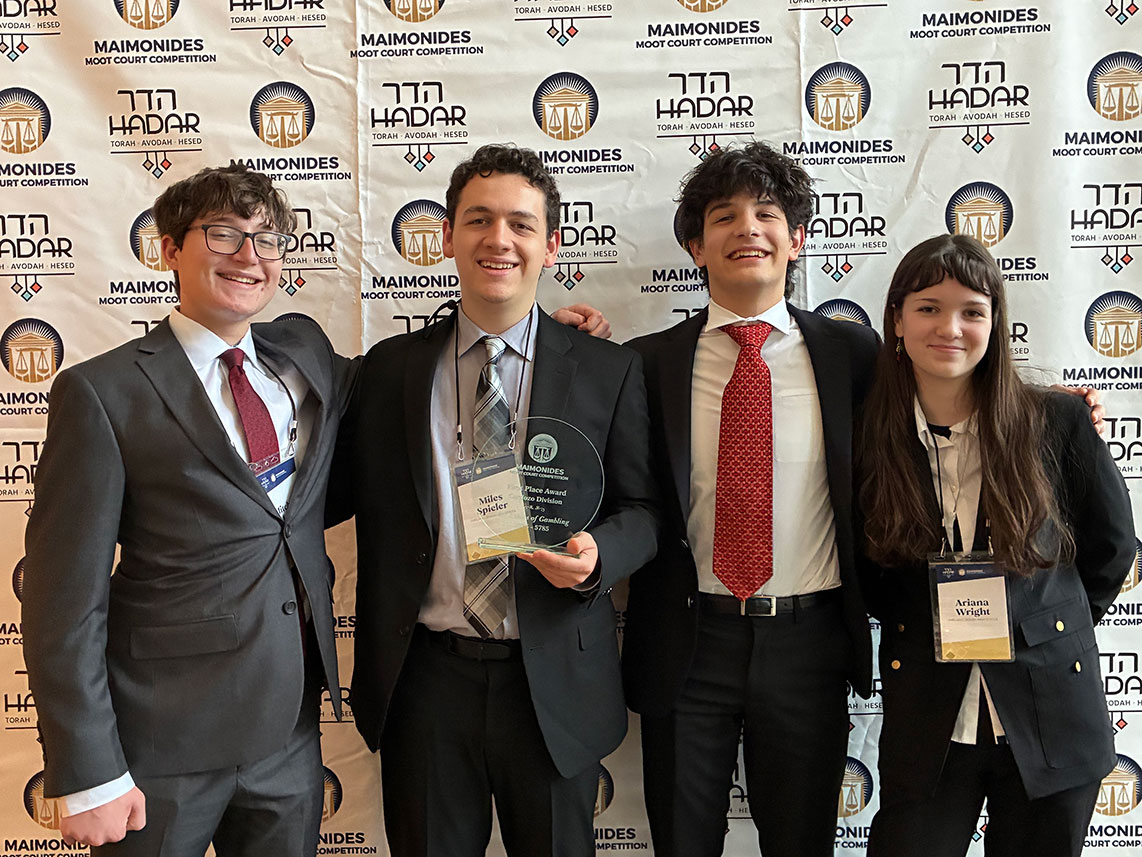By Melissa Hunter
Contributing Columnist
This year, the Nancy and David Wolf Holocaust and Humanity Center and the University of Cincinnati partnered together to establish a position to bring awareness to and educate the community on the importance of Holocaust education and the growing threat of antisemitism. The program launched with the hiring of Dr. Sarah Crane as visiting professor in UC’s Department of Judaic Studies in Holocaust and Genocide Studies and as scholar-in-residence at the Holocaust & Humanity Center. Melissa Hunter, contributing writer to The American Israelite sat down with Dr. Crane to learn more about her experience and her appointment of this new role:
MH: What inspired you to pursue a career in Holocaust and genocide studies, and how did you get started in the field?
SC: I actually went to college thinking I would be a professional French horn player. I ended up getting a double degree in music and history. In my senior year, one of my music teachers was asked to lead a Tibetan Studies program for my college. He asked if I would come and teach the history courses, since I’d also studied history. I was feeling a little out of my comfort zone, but I said yes, because it was an incredible opportunity.
We spent half of the semester at Sarah: College for Higher Tibetan Studies in Dharamsala, and the other half taking classes at the Dalai Lama’s monastery. I didn’t bring my French horn. To be honest, I’d be practicing so much, I needed a break. And I decided this would be my chance to see what I really wanted to do. So, I taught the history course. I brought in a lot of guest speakers. At that time, the Tibetan government in exile in Dharamsala was trying to garner a lot of international support to get what China had done in the Tibetan Autonomous Region recognized as cultural genocide. I became really interested in the topic. Why is this genocide important? Why are we delineating cultural genocide?
I had a student who was working with the government in exile to try to figure out how to broadcast their message on social media. I met with The Dalai Lama himself. He spoke with us, with my group, about his fear over what the future of the Tibetan people and the Tibetan Buddhist faith will be when he passes. I lived with people every day who had experienced this very real trauma, and very recently. It helped me think of history as much more of a lived experience versus something I just teach in the classroom. I remember calling one of my mentors and saying that I want to understand why genocide is important, why international law is important, where does the meaning behind this word come from? And he said, “You have to start with the Holocaust to understand the word both morally and legally. That’s where you need to start.”
MH: That’s quite a difference from studying the French horn!
SC: Yes, it is! I ended up pursuing a master’s degree in European studies at Indiana University in Bloomington. I spent the first year of my master’s in Bloomington, and then I spent a year at the Free University of Berlin. Eventually, I started studying Holocaust trials. I wrote my master’s thesis comparing Benjamin Ferencz, who, for a long time, was the oldest living Nuremberg prosecutor, to German prosecutor Fritz Bauer, who, in Germany, has really emerged as this kind of prominent figure. There are memorials and streets named after him. I was kind of drawn to him, to his legacy, and how his legacy looks different in the U.S. vs. Germany. It’s really interesting.
When I finished my master’s, I basically decided to take a little bit of time off before applying for Ph.D. programs. I worked for the Holocaust Museum in Seattle while I was doing my applications. That taught me a lot about how a Holocaust center understands itself. I kind of came to the Holocaust a little bit, you know, by accident, but it’s become my focus.
MH: That’s fantastic. What do you envision for your new role as visiting professor for the Holocaust and Genocide Studies program in the Judaic Studies Department at UC?
SC: I think my position will demonstrate to the university community and UC students that this history resonates today. I’m teaching a class on Holocaust Literature, and when my students come to class, sure, they want to talk about literature, but they also want to talk about human rights. They want to reckon with the current moment. My class has kind of become a unique, safe space for this conversation.
MH: Can you tell me a little more about the classes you are teaching?
SC: This semester, I taught Literature of the Holocaust and Religion and Genocide. In my Literature of the Holocaust class, I was thinking, what will it mean for me to teach this? I decided that we should go through the post-war decades and talk about the role of the survivors’ voices. This week we’re reading Maus, and we’re kind of talking about the ‘80s and ‘90s and the era of the witness. Then next week, we’re looking at Daniel Goldhagen’s book ‘Hitler’s Willing Executioners.” We’re going to talk about what that did to historiography. I’m trained as a historian and I did a lot of work on what German historiography was saying in the 1950s, and then how that changed in the 1960s with the Eichmann trial. I’ve been trying to put these perspectives into a dialogue, so I think that means this hasn’t necessarily been a typical course.
MH: Do you find that there are students with different backgrounds and different majors that are interested in taking these courses for their own personal growth and interest?
SC: I think so. One of my most engaged students in my literature class happens to be studying set design at CCM. My Religion and Genocide class is very small, but they do the readings and come to class well-informed and ready to grapple with these issues, even though this isn’t their major. I’ve seen students from all over the university taking these classes because they value these conversations.
MH: Can you tell me more about how, as scholar-in-residence, you will partner with the Holocaust and Humanities Center?
SC: I think it’s going to be kind of a two-way street. I want students to feel like they have the Holocaust Center as a resource. But I think the Center itself also wants to create spaces which are up-to-date on current events and discussions happening in the field. I have a role I can play in that. You know, I think my job as an academic is not necessarily to tell people how they should think, but to expose people to resources so they can think critically for themselves. I think both students and community members and the staff at the Center all do want to have these conversations but haven’t necessarily had a way to connect before, and I can help facilitate that. When we talk about extremism, what’s the language we use? Where do terms like “genocide” come from? How can we understand these terms to have these conversations right now? We’re only a few months in, so we’re also still kind of creating the role, and that’s fun and exciting!
MH: Can you describe the significance of this position, and why it’s so important for today?
SC: Why today? Why now? I think with survivors passing on, there is an immediacy to studying the Holocaust. The first Holocaust survivor I really encountered was when I met Naomi Warren at the Holocaust Museum in Houston. You always remember the first time you look into the eyes of a person who’s actually experienced this atrocity, and we’re not going to be able to replicate that. I think there’s some anxiety about that, but there’s also a kind of opportunity, because I don’t think the Holocaust was ever meant to mean one thing. It’s a prominent event of the 20th century, but if we embrace it as a discourse, as something that can mean different things in different decades, that can help the understanding of events of current times, there is an opportunity there.
I think the Holocaust also brings up some really essential questions, like, “What are the consequences of exclusion from a national community?” I’m not saying we should lose track of the facts and figures of the Holocaust, but I’ve seen that my students really respond to questions like, “Why do ordinary people participate in genocide?” “What is the legal definition of genocide?” I mean, these are very provocative questions, right? And the Holocaust has given us the vocabulary and a foundation to ask these questions. It is out the Holocaust that the term “genocide” was defined. I think now is a moment for us to embrace that.
MH: What do you hope students will take away from your classes?
SC: I hope students will come away with an understanding of the language we use to respond to atrocities and where that language comes from. What moments in post-war Holocaust history have people reached for that vocabulary? The Holocaust, while a unique event, can be used as a framework for understanding our current world and human nature and recognizing patterns that we see in atrocities today. There are crimes that offend the consciousness of humanity, and I want students to understand where that comes from.
MH: What a wonderful tool to be able to give students.
SC: I hope so. They might not walk away being able to fully understand the banality of evil, but I just kind of hope I’ve given them things to ponder.
MH: How do you create an environment where students feel supported and not afraid to express their opinions in the classroom?
SC: I had professors who were very honest with us about how their authority comes from a certain amount of training and research, but they are posing questions that have neither right nor wrong answers. I really wanted to open up that kind of space in my classroom. I mean, I think students still sometimes want to know what the right answer is, and I want them to know that I have a Ph.D. and years of training that help inform the way I give an answer, but I’m not here to tell you what’s right and wrong. I think it’s really important that students hear each other. I’m happy to give context and I’m happy to encourage conversation, but just communicating to them that they are there to talk to each other and with me is great. I hope this helps students feel like they can be vulnerable and recognize that while they have had different opportunities, they chose my class for a reason, and they are safe to explore their ideas here.




